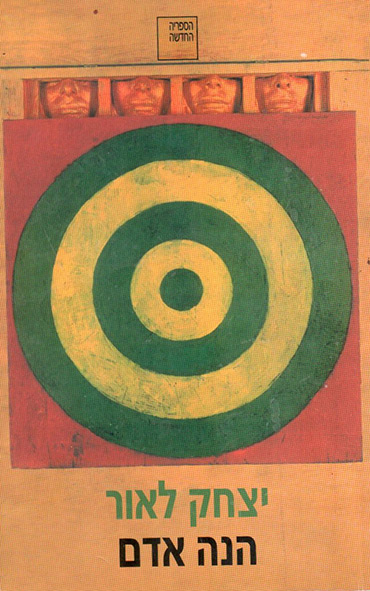
Ecce Homo
In this acclaimed novel, Adam Lotem, a 52-year-old general in the Israel Defense Forces, is in a sanatorium after having a stroke. In powerful prose, Laor takes us back through the events that brought him there. At the time of the first Gulf War in 1991, Adam slowly realizes that the power he wields is an illusion, and that he, like any ordinary soldier, is only a pawn. This is painfully evident during the war itself when the Israeli army, ordered not to retaliate, is forced to sit idle. But it also extends to his personal life, for he has sacrificed family, children, love. And now he has no faith in his military mission. His attitude starts to change when he meets the beautiful, smart Shulamit, with a sharp sense of humor. It is the first time that Adam falls in love with a woman rather than a girl (or a young female soldier). She increases his feeling that his career is meaningless; she also arouses his greatest fear: sexual failure. What is more, Adam’s main project in the military has been to set up special undercover counter-terror units in case of a Palestinian uprising. The project has succeeded beyond expectation and brought him great fame. But his success becomes a source of shame when he meets the bereaved father of one of his soldiers, accidentally shot by his comrades because he was dressed as a Palestinian. Adam then creates a secret project —“The Divine Comedy”— that will annihilate his entire past. His plan is to gather all the undercover units he has set up and trained, and lead them to the greatest fiasco in modern military history. Laor’s novel is a challenging and politically courageous satirical novel.

-
“ Laor has written a magnificent novel about contemporary Israel, its inner turmoil and search for identity, its national myths and political failures. ”
-
“ With the vital obscenity of a Rabelais, the acrid social criticism of a Swift and the liberating vulgarisms of Grobian epics, he runs in his endless story against the fundaments of Israeli society. A masterly work. ”
-
“ A 600-page long outcry, a caustic and fierce novel... A powerful novel. ”
-
“ A magnificent novel – perhaps Laor's most overwhelming book to date. ”
